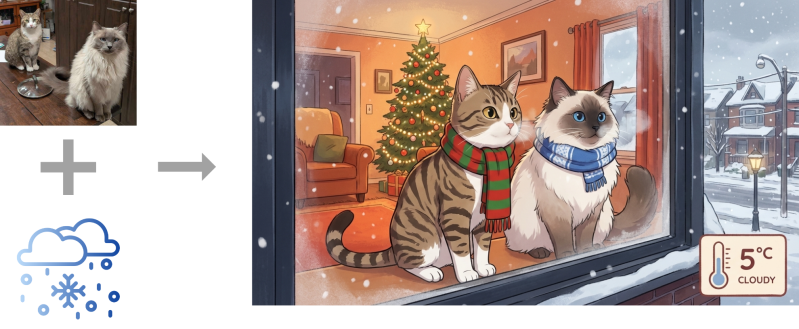I come by depression honestly. It has walked with members of my family from both sides, and for at least two generations before my own. Given the strong impulse to keep depression private—one that those who have experienced may find familiar—it’s likely my grandmother was not the first. Naming all my ancestors who knew depressionContinue reading "My ancestors and depression"
I come by depression honestly. It has walked with members of my family from both sides, and for at least two generations before my own. Given the strong impulse to keep depression private—one that those who have experienced may find familiar—it’s likely my grandmother was not the first.

Naming all my ancestors who knew depression would not give a full picture of the relationship between my family and this spirit, however. That’s because depression is deathless, with a long memory. Humans are resilient, but resilience is a generational trait, made necessary by what else gets handed down from parent to child: the hard-learned lessons that kept them alive. Humans who survive their own trials long enough to reproduce have invariably had a lot of trauma, and that’s part of what we learn from our parents.
That’s the thing with depression: the family lines without it have probably all died out. Depression is closely associated with survival. That which does not kill us, makes us stronger.
Ugh.
I sit with what this means, and what rises is a curious mix of gratitude and revulsion. Life is a gift, and it is precious. That which is precious is also costly. What works to extend life is often messy and painful, like how sickle-cell anemia guards against malaria. There’s a lot of ugliness that has helped us survive until this moment in time.
Some of my distant ancestors walked with depression, but does that mean that they have insight into how to manage the experience? I believe that this is as true as it is regarding any wisdom offered by the ancestors. The challenges they faced were different in quality and quantity. I’ve never known anyone cut down by plague, or smallpox, or tuberculosis. They never faced existential crises like nuclear annihilation or catastrophic climate change. Nevertheless, these all evoke a since of powerlessness in the face of something bigger than ourselves. That’s an enduring part of the human experience.
An important difference is that my earliest ancestors were filtering information differently than most of us do today. Human brains are all about the filtering, because there just isn’t enough energy to focus on stuff that doesn’t matter. The introduction of empiricism significantly altered the types of information that gets filtered out, and that’s not necessarily to our benefit. Pagans and others spend a lot of time trying to alter our state of mind in order to shift to a different set of filters, ones that perhaps our ancestors used. It’s about attuning with principles and presences that are not easily measured, but are nevertheless real. The big limitation of science is that the blind spots created by our filters make it hard to imagine forms of measurement that are not aligned with the vibrational scheme on which our senses are based. Inductive and non-linear ways of thinking, which were more common in other times and places than my own, might offer insights that I otherwise would struggle to grasp. Yes, my ancestors can have valuable insight despite not having lives very much like my own.
Evidence suggests that depression might be more common than in the past, but it’s only a suggestion. Yes, there are more cases reported, but all that means is that there are more cases reported. We might just be getting better at recognizing the issue. I detailed in my book Empty Cauldrons that there’s also evidence that depression has been a useful survival tool in the past. If depression is passed on through genetics, or habits, or as a family companion spirit, then it may indeed be more common than it was among our ancestors.
It could be that whatever purpose depression once served no longer exists, and it’s nothing but a harmful artifact along the lines of post-traumatic stress. It could also be that depression’s brutal tactics continue to serve us in ways that we revile and also do not fully understand. There was a time when it reduced the chance of infection and contagion by altering the behavior of the victim. Depression’s brutish approach, which can crush the human spirit and snuffs out no small number of lives, provided a public-health benefit stretching back before the time of written language. It may well have saved our species. Would my ancestors have understood that when they walked the land? Do they understand it now, centuries and millennia after their bodies have turned to dust?
Given a choice between experiencing depression and not experiencing depression, I’d rather have not endured that bleak and oppressive state of being. I cannot see a big enough picture to recognize ways that I am better for its presence, or to show that I have lived longer or better for having endured it. However, I could be wrong. Certainly Orion Foxwood, who I interviewed for my book, saw value in that darkness. “Sometimes we just need to be sad,” Fox told me.
I am not in depression now. I do not know what the future holds, but I am rooted in the knowledge that the past—my own and that of my ancestors—will never be diminished in that darkness. The wisdom I have derived from experience, the wisdom my ancestors have accumulated and are willing to share, and the healing wisdom of the gods I serve will always be with me.








